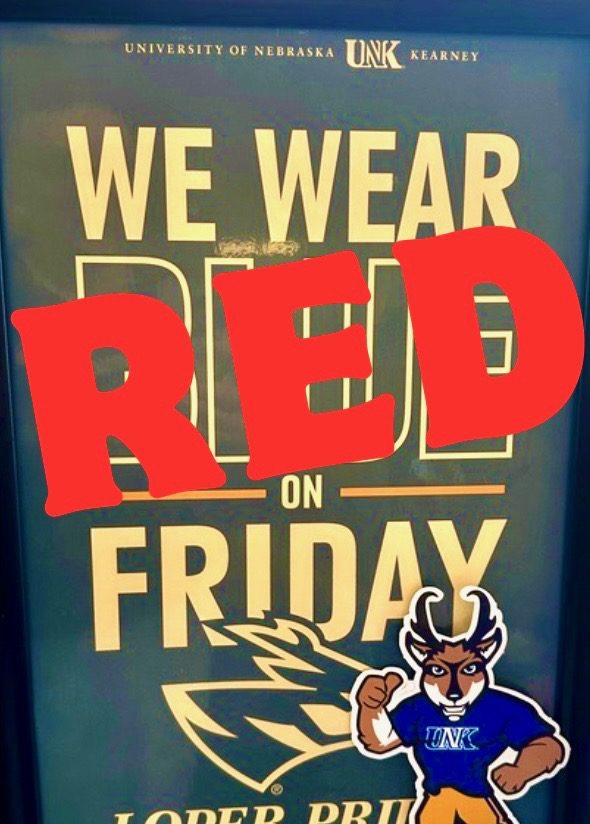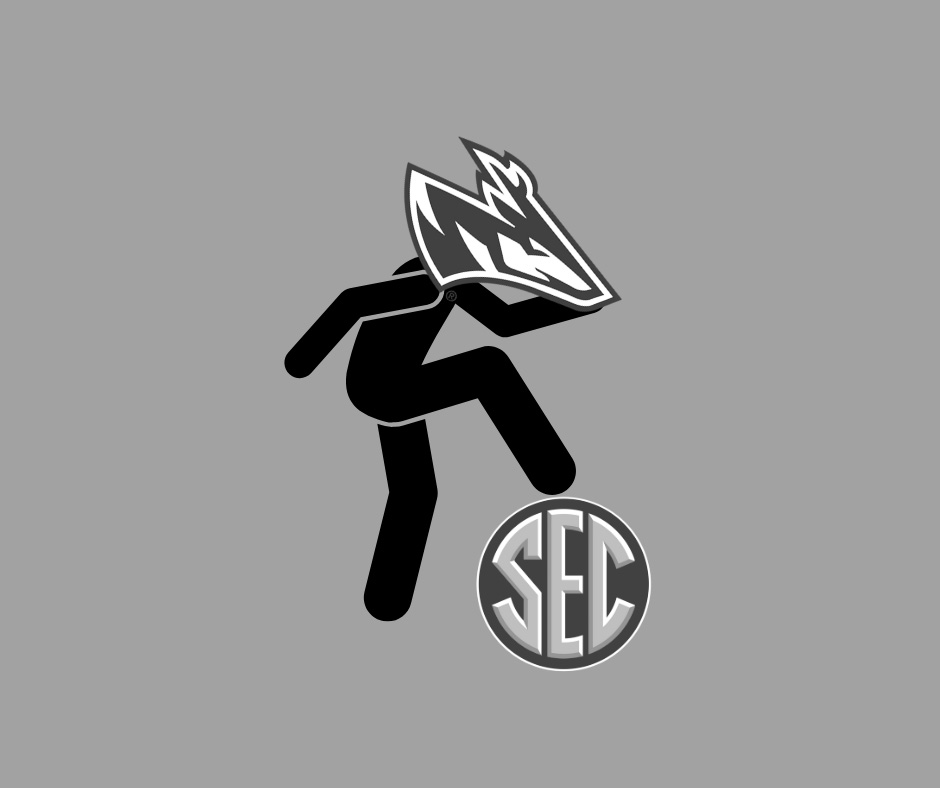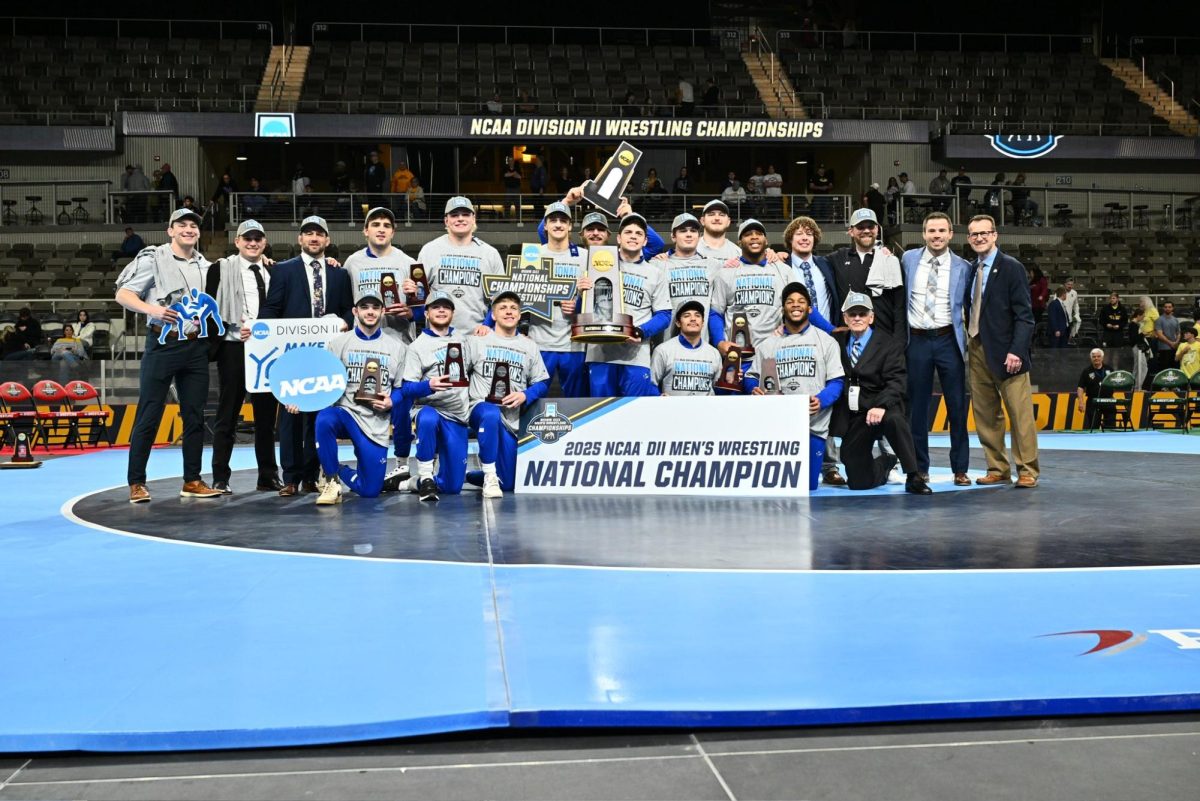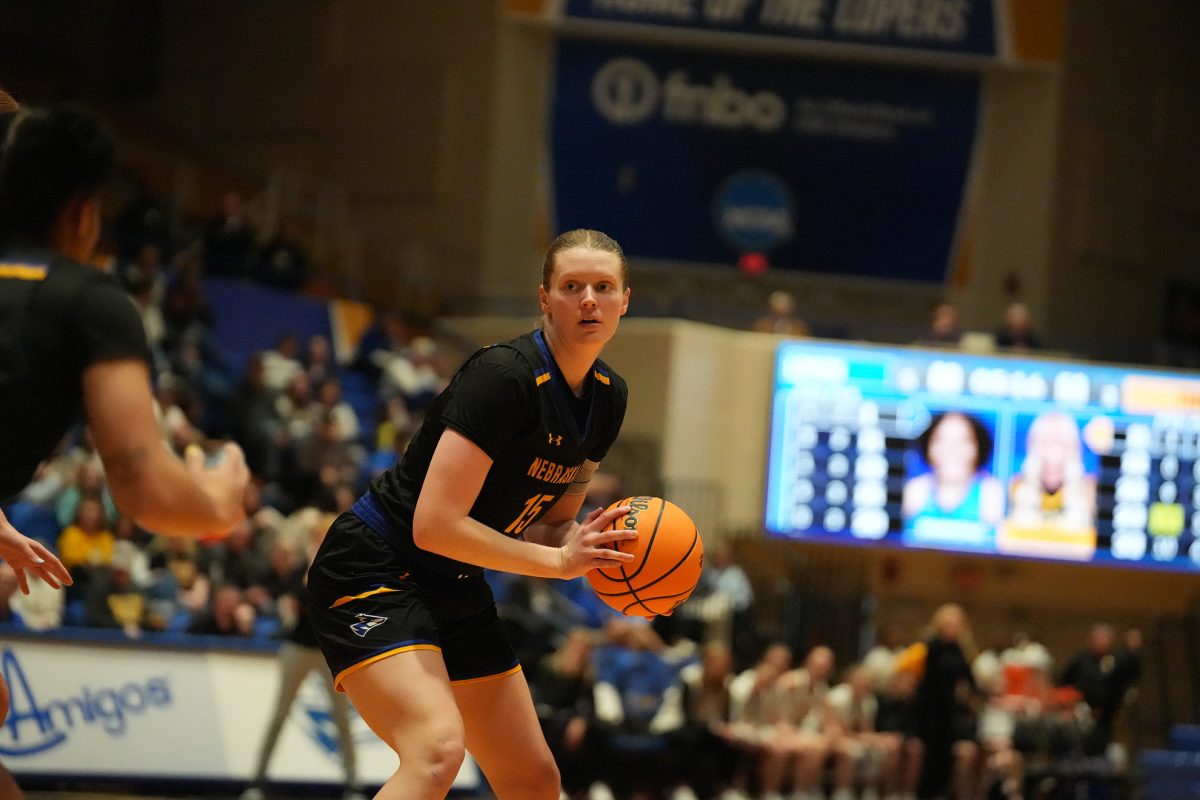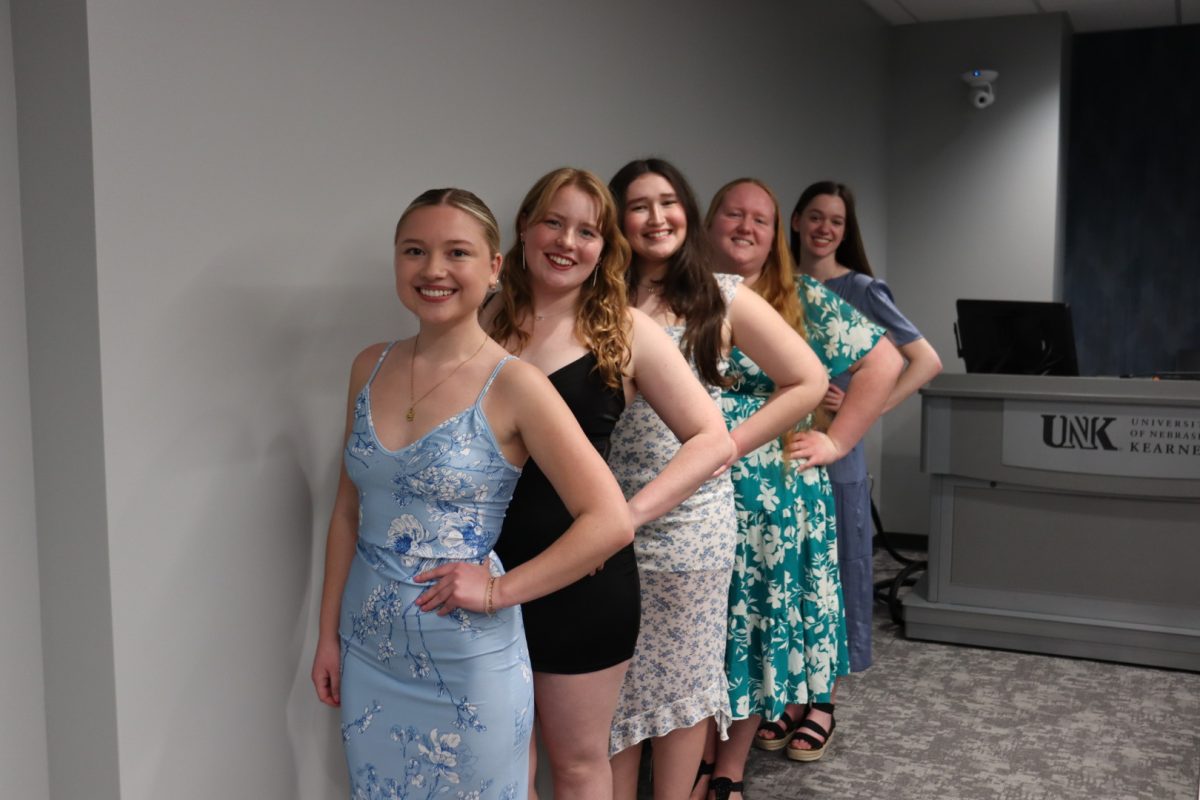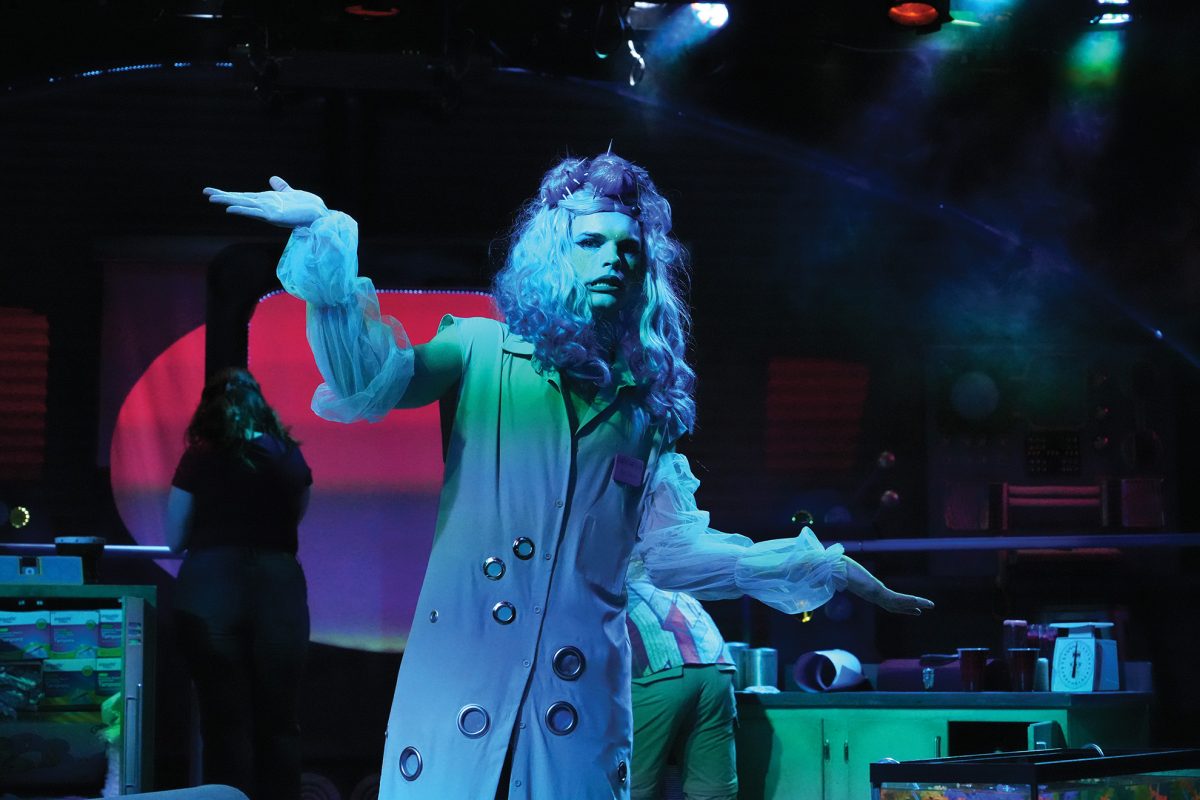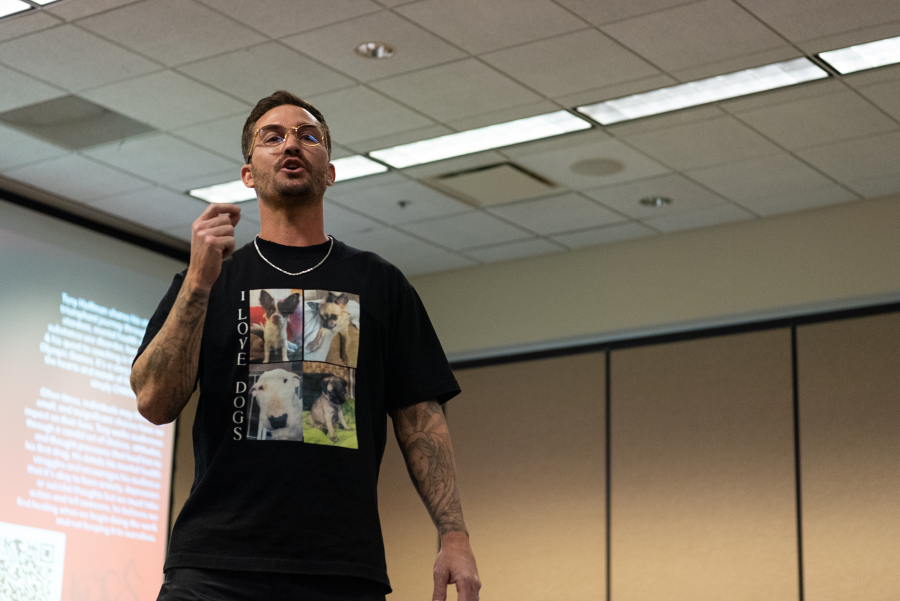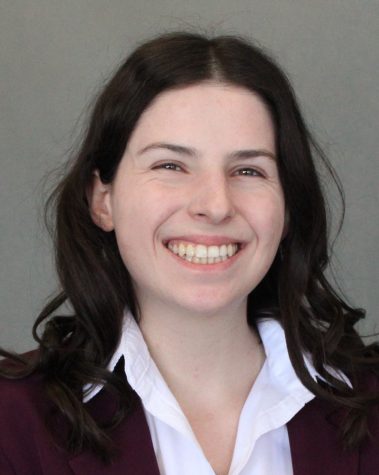bruningm@lopers.unk.edu
Tony Hoffman, a former drug addict turned Olympic coach, came and spoke in the Ponderosa Room at the Student Union on Thursday to talk about mental health and his life experiences.
Hoffman, sporting a ‘I love dogs’ shirt and two full sleeves of tattoos, spoke honestly to the UNK community about his story of addiction and journey to sobriety. His narrative centers around how drug use was a coping mechanism for his mental health.
“It took me 20 years to figure out I had this thing called social anxiety,” Hoffman said. “My social anxiety wouldn’t allow me to socialize like I was watching everyone else do.”
Hoffman grew up in Fresno, California, and attended California Clovis Unified School District as a kid. He was naturally talented at sports and dreamed of being drafted into the NBA. Hoffman was also adept at building computers, having built seven computers in high school.
In seventh grade, he began to feel symptoms of social anxiety and suicidal thoughts. He found refuge in BMX competitions, yet the feelings persisted “as soon as he took his helmet off.”
Alongside mental health, Hoffman discussed the stigma around using prescription drugs like Oxycontin.
“When I first took Oxycontin, I didn’t think it was a big deal,” Hoffman said. “Why? Because it came out of an orange bottle.”
He also talked about friends in his life that shared his addiction and one that lost his life to prescribed drugs.
The UNK Student Health and Counseling department hosted the event.
Jordan McCoy, UNK’s wellness promotion and prevention coordinator, said the department hosted the event as a collaborative effort for the substance use task force at UNK.
“This is a big collaboration with a lot of different people to support mental health and substance abuse,” McCoy said. “For students to get resources and hear a positive message about how there is help for those who are struggling.”
The task force has stakeholders around campus such as Fraternity and Sorority Life. The event wasn’t possible without sponsors like Residence Life, UNK Student Engagement, Greeks Advocating for Healthy Lifestyles (GAMMA) and Peer Health. The project was also 62% funded by SAMHSA Grant through the Nebraska Department of Health and Human Services and Region 3 Behavioral Health Services.
Wendy Schardt, UNK Director of Student Health and Counseling, hopes that the task force and event will reinforce drug prevention on campus.
“A big portion of the substance abuse task force is prevention,” Schardt said. “We’re getting the word out about how to face mental health challenges, addiction challenges and seeing that there are success stories out there.”
Through his story of life after prison, Hoffman convinced the audience that “you get to decide who you are.” He began coaching BMX athletes six months after being released from prison. In 2016, his nonprofit organization was raising over $120,000 a year. Hoffman had coached two world champions and three national champions. On top of it all, he became the most demanded speaker on mental health and substance abuse.
Hoffman illustrated an inspiring scene of his sobriety. He described the experience of staying on a beach in Brazil, preparing for the Olympics: a place he never expected himself to see as a past drug addict.
“When you step on the sand of Rio de Janeiro, you can’t even walk on it because it’s like butter,” Hoffman said. “I got up, I drank my espresso, I wrote my little spiritual letter, and I looked at the beach and ate a real acai bowl in the native country, and I thought to myself: this is crazy.”
Hoffman now lives in Dallas, Texas, confessing that he moved there to be six minutes away from the Mavericks’ arena. Hoffman is opening his own treatment facility for people affected by substance abuse. He plans to offer patients jobs with $21 per hour, healthcare packages and retirement packages. A unique component of the facility will be the implementation of physical fitness.
Hoffman revealed the steps that lead to a healthier mindset and the pursuit of success.
“It was a culmination of changing my character, accepting responsibility for myself and accepting who I was in my uniqueness,” Hoffman said.



